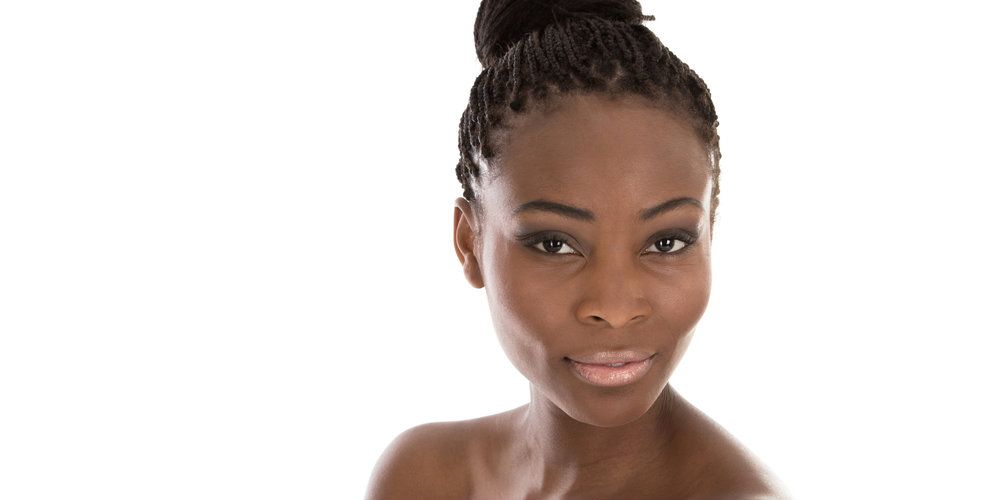Black Feminist Organization Launches Call for Sexual Assault Narratives

In August, I wrote briefly about the profusion of sexual assault tales within Black women’s narratives, after researching books to include on a list for teenage girls (also posted on For Harriet). This was influenced, in part, by celebrities like Vanessa Williams and Jada Pinkett-Smith opening up about their own experiences as sexual assault survivors, in the wake of the case about 16-year-old Jada from Houston, TX. And last month, I wrote about Daniel Holtzclaw, an Oklahoma City police officer accused of sexually assaulting up to nine Black women while on duty.
It seems as if every time a Black woman opens up about her life and the experiences that have marked and shaped her, she must also divulge her history of surviving sexual violence. In some ways, the ability and willingness of Black women to reclaim such horrific, traumatic experiences is courageous and empowering. Let me be explicit by stating that in no way do I believe it’s the responsibility of a survivor to tell others about what happened to them. However, I do recognize the healing and reclaiming that can result from women being honest about their experiences of sexual assault. Indeed, when I finally began speaking about my own sexual assault and coercive relationship without fear, guilt, or shame, it was a transformative.
Black Women’s Blueprint (BWB) is a civil and human rights organization, whose purpose is to take action to secure social, political, and economic equality for Black women in American society. They offer a number of programs and campaigns to serve women of the African Diaspora, but they recently launched the Black Women’s Truth and Reconciliation Commission (BWTRC) campaign, which is the first of its kind in the U.S., to focus on rape/sexual assault and its affects specifically on women of African descent. The BWTRC aims to collect 1,000 stories from Black women about how sexual assault has impacted their lives in the workforce, educational settings, and general financial stability. As a Black feminist organization, BWB is also dedicated to providing counseling and healing services to people of color who have experienced domestic and sexual violence.
Farah Tanis, co-founder of Black Women's Blueprint, states that, “The Truth and Reconciliation Commission aims to engage the community with new and effective responses. The responses would promote accountability through targeted relevant organizing, designed to affect systemic change on particular laws and policies, which continuously fail to reduce the high incidents of rape on Black women in their communities.” To accomplish this, the BWTRC has four mandates: truth, justice, healing, and reconciliation—which exist to provide survivors with multi-layered services and resources, including healing, economic security, and holding their attackers accountable.
Although there has been an increased and ongoing dialogue surrounding gender-based and sexual violence during the past few years, many of these dialogues fail to address the unique ways in which Black women are not only victimized by sexual assault—but also, how our bodies and sexual agencies are objectified and criminalized. We hear a lot about “rape culture” in the U.S., but how often do white feminists and anti-rape advocates connect it to the centuries of chattel slavery and rape used to brutalize and violate Black women? Thus, the goal of the BWTRC to collect 1,000 stories is nothing short of monumental.
The Truth and Reconciliation Commission utilizes multiple tools for Black women across the world to share their stories. First, Black Women's Blueprint's interactive website, MyFreedomLounge.com, allows survivors of sexual assault to submit their typed stories for other members of the website to offer support and guidance towards healing. Survivors are also able to text, record, or set up a time to share their stories either in person, if located in the New York City area, or by calling the number 646-647-5414. The identities of those who submit their stories are kept in confidentiality.
As a result of gathering 1,000 sexual assault narratives, Black Women's Blueprint's hopes to connect sexual assault with its correlation to economic injustice and present the information to the United Nations in 2016. The organization plans to use the Truth Commission to instill policy changes such as protecting survivors in the workplace by removing the “at will” policy, which could release an employee for no reason, although some women may be coping with sexual violence. Additionally, BWB would like the narratives to advocate for women on college campuses to have a complete understanding of their rights as survivors under Title IX.
For more information on the Commission, you may visit the campaign’s website at http://www.blackwomensblueprint.org/sexual-violence/ or email Black Women’s Blueprint at blackwomen@blueprintny.org.
Photo Credit: Shutterstock

No comments: